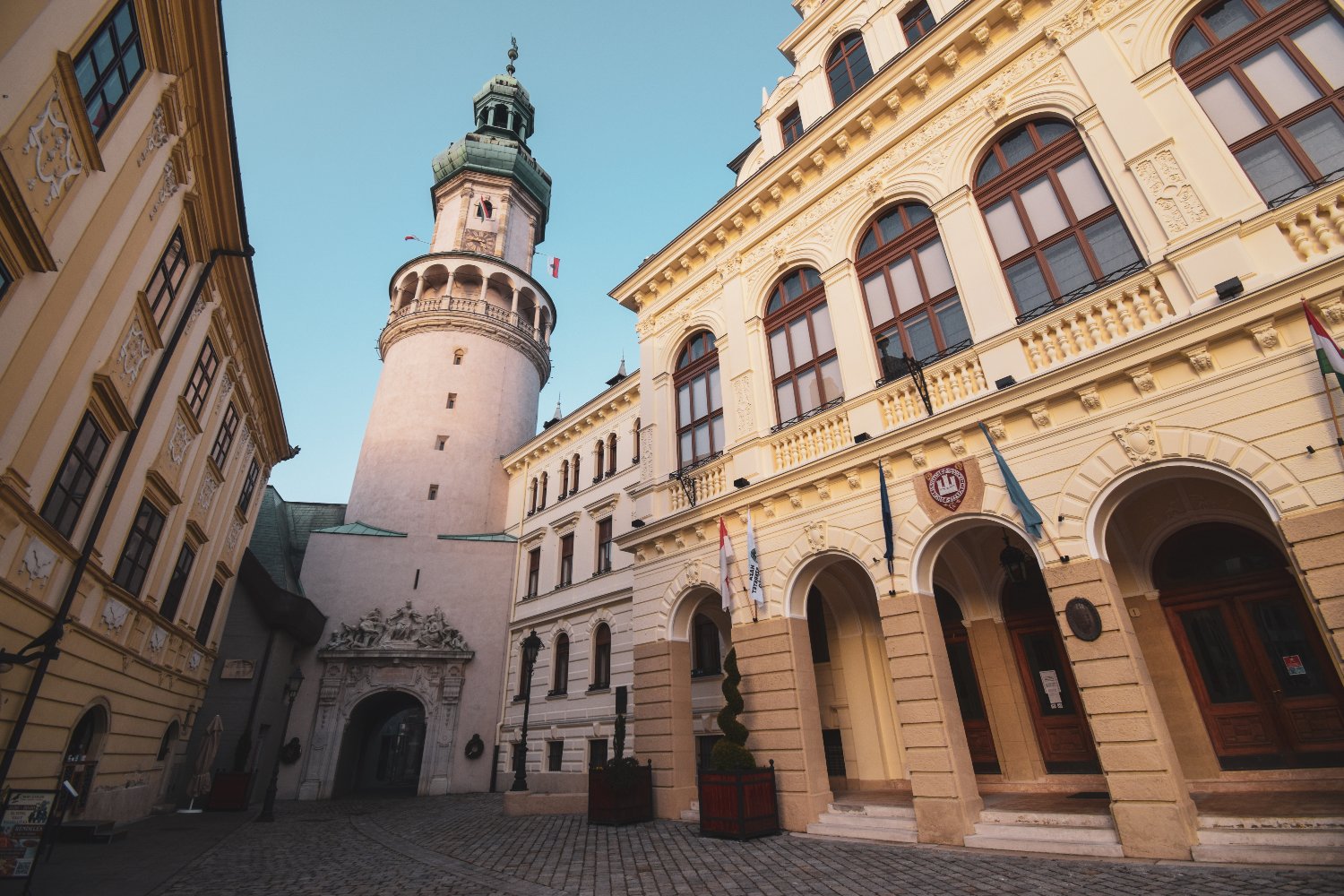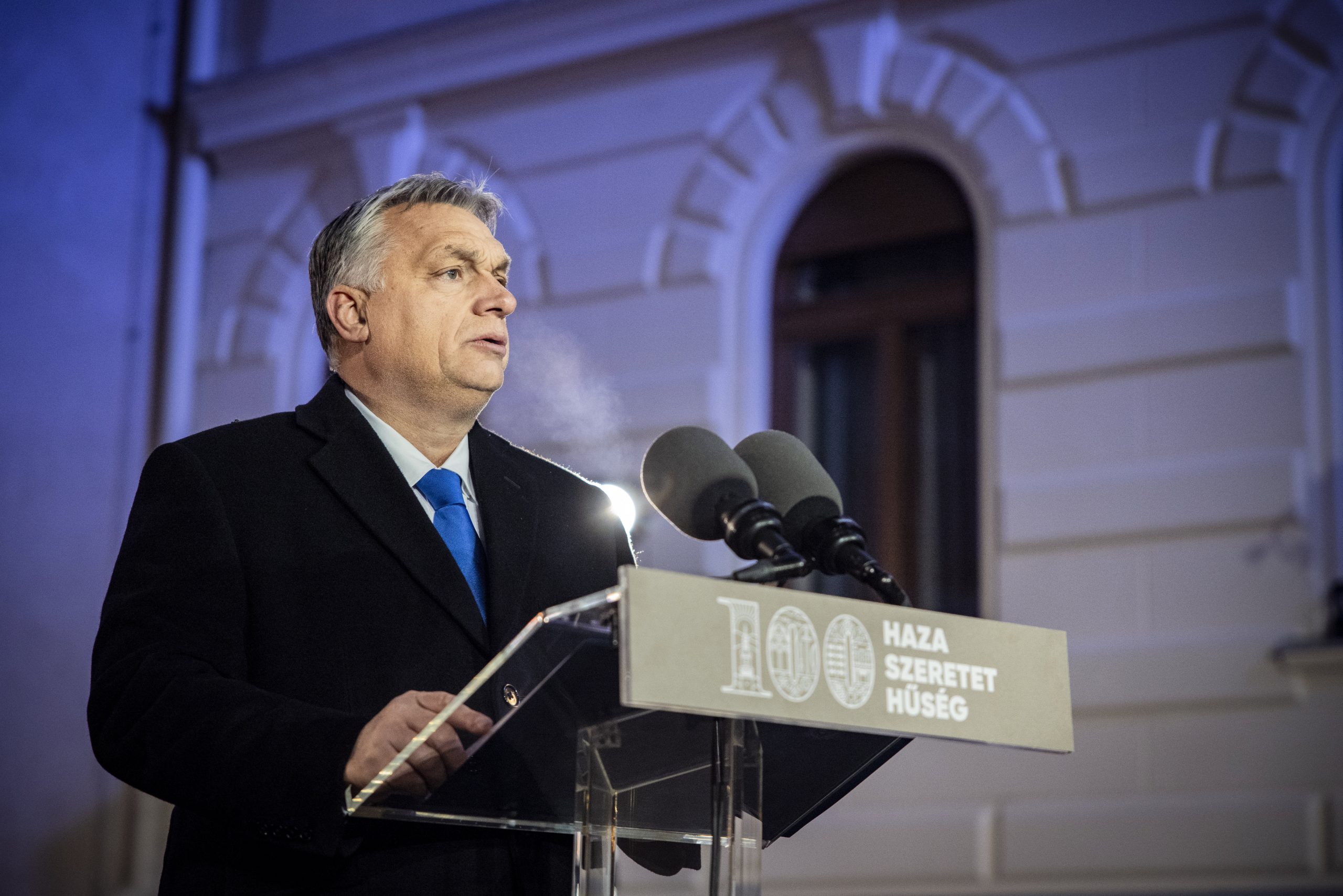
The referendum resulted in 72.8 percent having voted for Hungary, and the city was awarded the title of "Civitas Fidelissima" (most loyal town).Continue reading

Freedom and patriotism are the two great traditions of Hungarian politics, the “two main pillars of one-thousand-year-old Hungary, ones that are connected by the beam of fidelity,” Prime Minister Viktor Orbán said in Sopron, marking the referendum that kept the city within Hungary’s borders hundred years ago.
Under the post-WWI Trianon Peace Treaty, Sopron, adjacent to the border with Austria, was ceded to that country. Local residents, however, had an opportunity on December 14, 1921, to reverse the decision concerning the city and the surrounding area. They voted in favour of remaining part of Hungary and Sopron has since been called Civitas Fidelissima, the Most Faithful City.
Marking the anniversary, the prime minister asked Sopron “to remain the city of fidelity, a city that connects our homeland with freedom, and thus making Hungary so solid that we, Hungarians, can feel at home living in it”.
After the Trianon Peace Treaty Hungary “was seemingly dead” and it was here, in Sopron, that “its heart started to beat again. And it is now throbbing more quickly and strongly than ever over the past hundred years,” Orbán said.
The prime minister said that Hungary had to pay more for WWI than anyone else “even if it had not wanted and initiated that war. They [the victorious powers] even wanted to punish us for being, and wishing to remain, Hungarians, and wanted to force millions of Hungarians to forget their past, their nation and their culture,” he said.
“Hungary, however, has survived what was meant to be a mortal stab and indicated that it would recover. And it was not money, power, external support or weapons that enabled it to survive but the strength of patriots that the most faithful city lent to the nation,” Orbán said.
The prime minister said the situation today is also difficult, adding that “we need the reassuring example of Soproners”. He said that there was a threat of war in “our neighbourhood”, millions are on their way migrating from one continent to another, epidemics are claiming millions of lives and several countries are suffering from an energy crisis.
There are again those “who, abusing their power, want to tell us who we should be, and with whom and how we should live together,” Orbán said. “They want us to forget our thousand-year-old history and our culture, and to cut ourselves off from our Christian roots. They want us to give up our identity, and become someone else, to be like everyone else,” Orbán said.
Hungary is preparing again for a national referendum, “we again want to say no to foreign plans threatening Hungary’s future”, Orbán said, adding that “we want to protect our children against the LGBTQ propaganda just as the way we have protected Hungarian families from migrants”.
Orbán said that in its recent ruling, the Constitutional Court stated that “we have the right to say no to Brussels’ human experiments, we have the right to defend Hungary, to secure Hungary’s future”.
Orbán said that his government had over the past ten years united all Hungarians, given jobs to everybody who wanted to work, strengthened families, reduced household utility prices and protected the country from illegal immigrants.
Speaking about future prospects for Hungarians, he noted the scrapping of personal income tax for the youth, a tax rebate for families, further increase of the minimum wages and the reintroduction of a 13th month pension. Orbán further noted a large-scale military modernisation and rail and road infrastructure developments across the Carpathian Basin. “The best for Hungary is to go forward and not backward, that’s what we suggest,” he said.
featured image MTI/PM’s Press Office/Zoltán Fischer